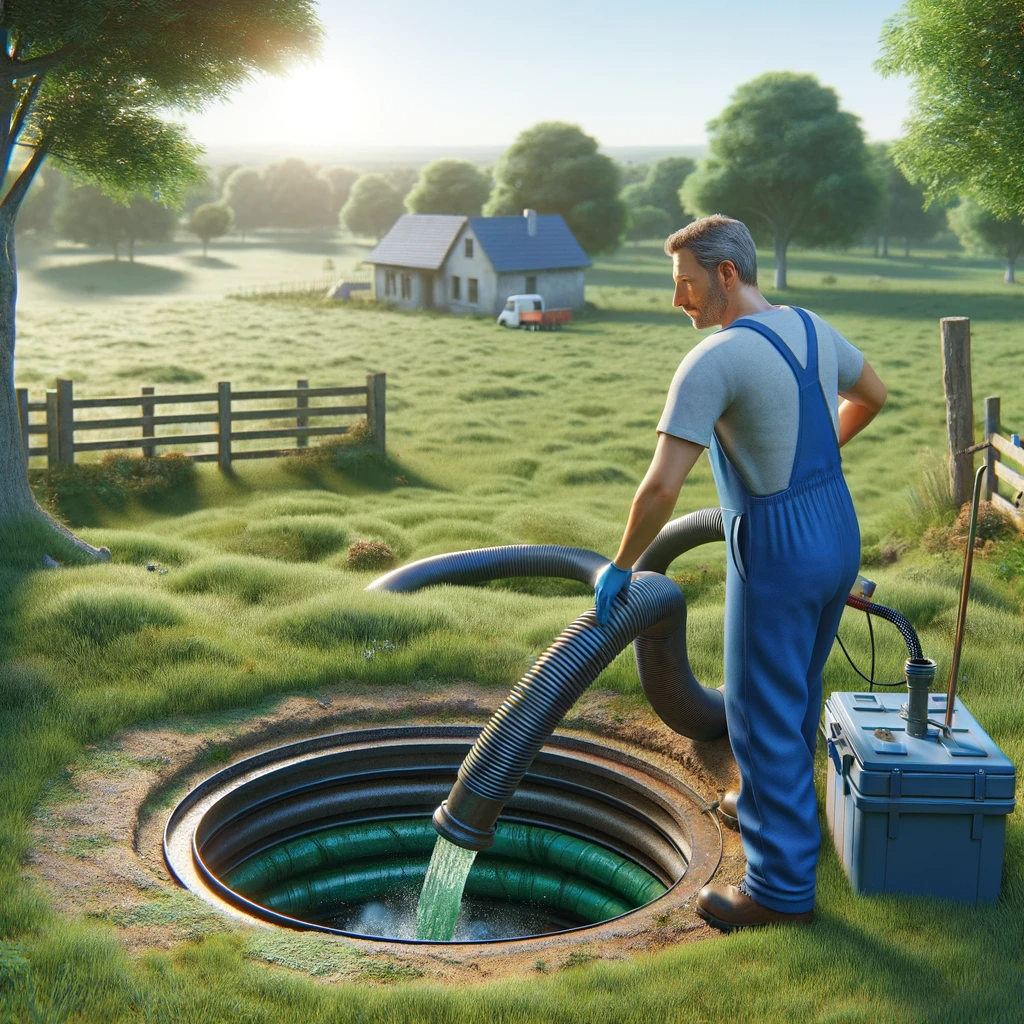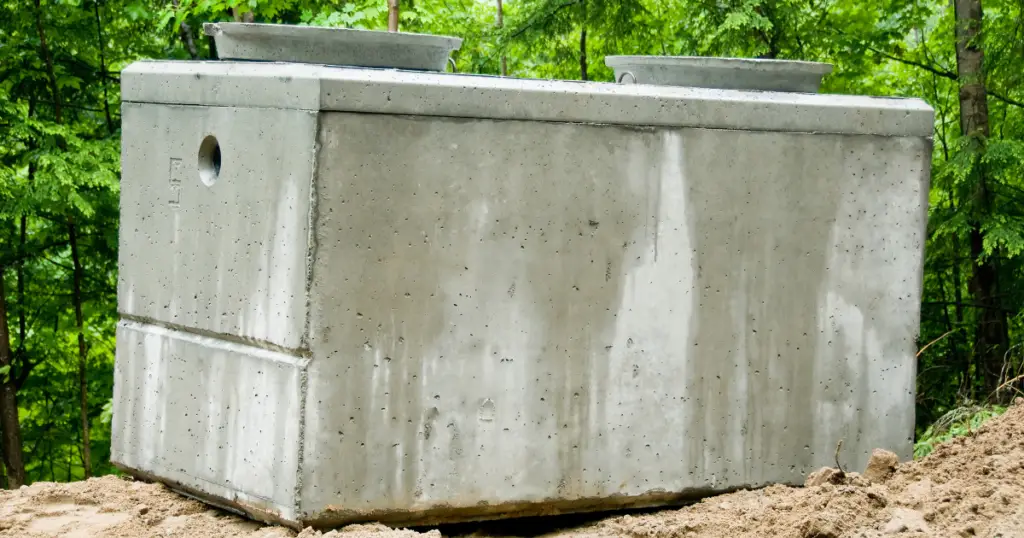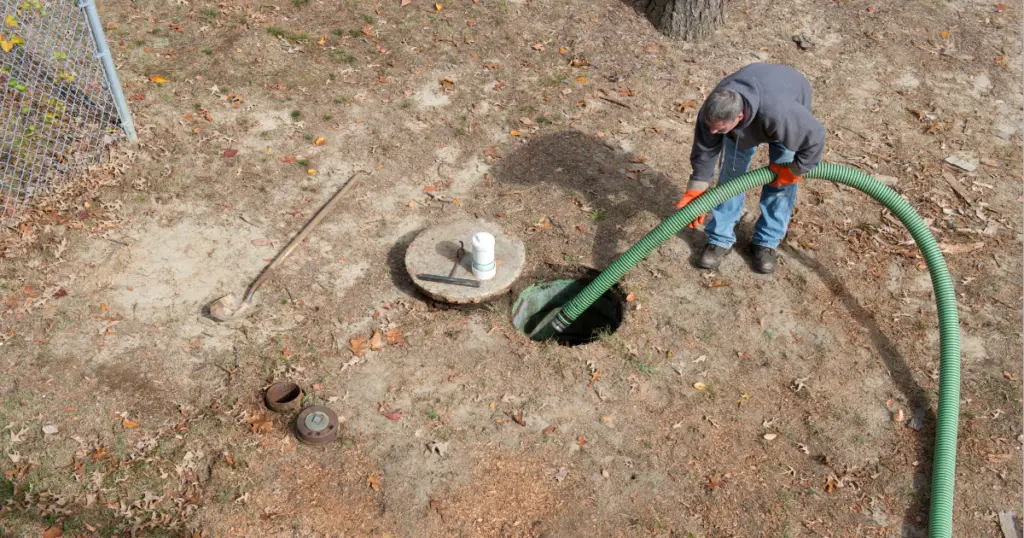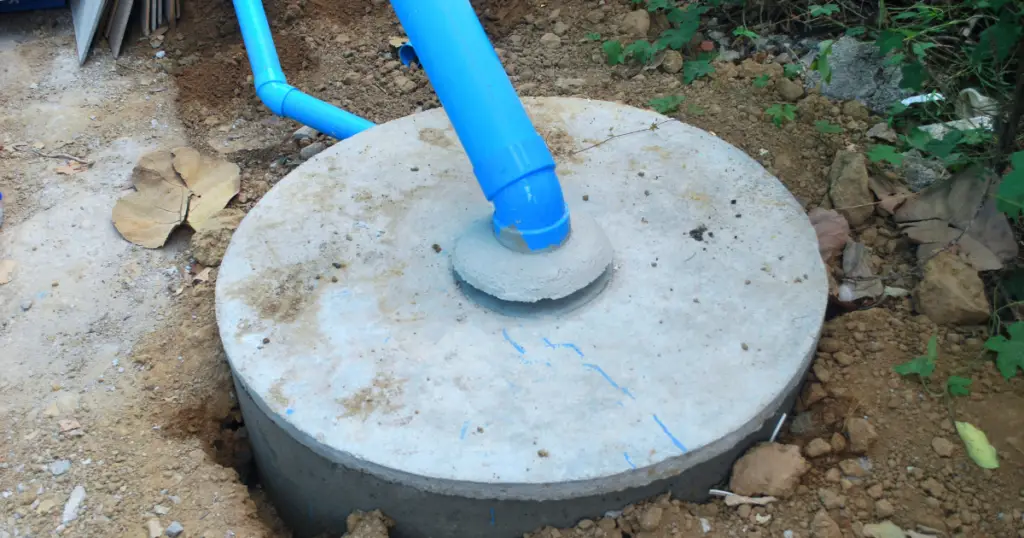A septic tank is an integral part of many homes that rely on a septic system. It houses all the waste from the kitchen sink, bathtub, and washing machine before sending it onto the drainfield. The tanks treat household waste and work by decomposing natural materials like food scraps and paper through a process known as anaerobic digestion.
In addition, sludge accumulates at the bottom of the tank, which needs to be pumped out periodically. A properly functioning septic tank and septic system are essential for keeping your household healthy, sanitary, and safe. Septic Tanks must be maintained regularly to ensure they are safe and effective in preventing ground and surface water contamination due to hazardous chemicals or raw sewage.
If your home utilizes a septic tank, it’s essential to understand its operations and how to maintain it. This will help protect your family from potential illness-causing bacteria and protect your property’s cleanliness. So, let’s dive into this article and get started!
understand
How Do Septic Tanks Work?
Septic tanks collect and store wastewater from homes, businesses, and other entities. The tank typically contains bacteria which helps break down the waste into sludge that can be safely disposed of or reused. Inside the tank are two chambers – a sediment chamber and an effluent chamber.
to permanently store
The sediment chamber holds heavier solids like sand, grease, and other debris that naturally settle to the bottom of the tank. The effluent chamber collects wastewater from appliances like toilets, showers, sinks, washing machines, and so on.
Once wastewater enters the tank through an inlet pipe, it flows into the sediment chamber where heavier solids settle to the bottom. From there, lighter materials such as oil rise to the top and form a scum layer. The remaining liquid passes through a wall dividing the two chambers and flows into an outlet pipe leading away from your home or business. This liquid is then sent out either to a leach field or sewage treatment plant.
What misconceptions are most frequently held about a septic system?
Many people think that a septic tank is intended to store waste materials permanently and temporarily hold wastewater, but this is incorrect. They are designed to temporarily hold wastewater until it can be properly disposed of or reused. They are not meant for long-term storage and may become clogged if subjected to too much material over some time.
Misconceptions and even myths about it can lead to trepidation when purchasing a home with one. Let’s clear the air on some of these most frequent misunderstandings so you can confidently make an informed decision.
- They are only necessary for rural homes: This is not true, as many urban homes also have septic systems installed.
- Septic tank additives improve performance: While they can help reduce odors, they do not aid in wastewater breakdown or enhance the system’s functioning.
- Septic system breakdowns are common: With proper care and upkeep, a septic system can last an incredible 40 years or more—the EPA reports that some systems may even survive longer.
- Septic systems bad odor: When your septic system is correctly maintained, no foul or unusual odors should be present. However, if you detect an unpleasant scent coming from the drains or the vicinity of your septic tank, it could be a sign that something has gone wrong and needs to be addressed immediately.
- A septic system can contaminate a well: To ensure your well doesn’t become contaminated, a system must be installed and regularly maintained properly. The setup must be located 50 feet away from any wells on-site – this helps create a barrier between drinking water and wastewater.
- A home inspection will examine the septic system: Getting a comprehensive picture of your home’s condition requires an expert who can accurately inspect and evaluate the septic system. A typical home inspection does not provide more than a brief overview, so it is essential to seek out an individual knowledgeable about how they operate and how to assess them properly.
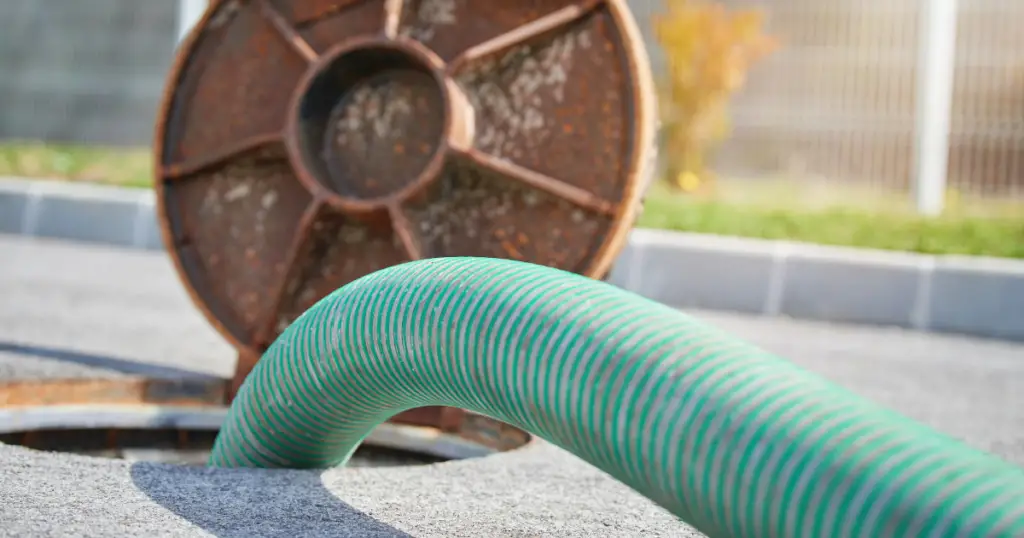
Septic System Maintenance
- Ensure to have the right size: The septic tank size should be based on the amount of wastewater your home produces. An undersized tank will lead to clogs due to insufficient treatment and can cause backups, overflows, and other costly problems. If you are unsure of the size of your septic tank, a knowledgeable professional from an experienced cleaning company can evaluate it and let you know. Generally speaking, most tanks are between 1-2 thousand gallons in capacity.
- Consider the total wastewater generated: It’s not just the size of your home that determines how much wastewater your septic system will handle ( including washing machine use, dishwashing, and showers), but also how often you use it. The more water you generate, the faster solids accumulate in the tank and require cleaning out.
- Professional assistance: Have a professional technician inspect your tank and drainage field at least once a year.
- Pump the tank: Pump out the tank every three to five years depending on the volume of water used by your household.
- Regular Inspections: Inspect the seepage area around the drain field regularly for signs of clogging or pooling water.
- Stay vigilant about waste management: Monitor the levels of waste in the septic tank and make sure not to overload it with too much wastewater.
- Repair leaks: Repair any plumbing leaks that may be causing an increase in water entering into the drain field or septic tank.
- Replace any faulty components: If needed replace damaged components in your septic system and watch for signs of damage or malfunctioning parts throughout the year.
- Install filters: Ensure install filters on fixtures like sinks, showers, washing machines, and toilets to reduce solids from entering the septic system.
- Avoid putting harsh chemicals: Chemicals such as bleach down drains as these can harm bacteria necessary for decomposition in the tank and contaminate ground and surface waters near your property when they eventually reach them via leakage or runoff from areas around your home.
How often should I have my septic tank pumped?
Generally speaking, a septic tank should be pumped and cleaned every 3 to 5 years, depending on the household size, the amount of wastewater generated, and the volume of solids in the wastewater.
The following is a guide to help determine frequency:
- Household size: The larger your family is, the more likely it is that your septic tank will fill up with solids faster than normal and need to be pumped more frequently.
- Total wastewater generated: The more wastewater generated per day, such as from laundry or multiple showers taken for example, the sooner solids will accumulate and your tank needs pumping.
- The volume of solids in wastewater: Food waste, paper towels, cat litter, and other solid materials can easily clog a drain field or cause a backup if not broken down properly by bacteria in the system. Therefore, regular pumping is necessary to prevent this from happening.
- Sludge and scum levels: The levels of sludge and scum in the tank should be monitored closely to determine when it is necessary to pump. If they become too high, pumping is needed sooner rather than later.
- Septic tank size: Larger tanks tend to need less frequent maintenance than smaller tanks because they have more capacity for solids before reaching their full limit.
How Long Before The Septic Tank Is Full?
Typically a septic tank will fill up over some time, often taking several years. The rate at which septic tanks fill up largely depends on the tank’s size, usage, and regular maintenance. Tank size, household size, amount of wastewater generated and the volume of solids in the wastewater all affect how quickly a tank can fill up.
What are the signs that your septic tank is full?
Here are five signs that your septic system is full:
- Strong odors from sewer lines or drains – If you notice a strong odor coming from your plumbing system, this could be a sign that the septic tank is full and needs emptying inspect for any signs of dysfunction or obstruction routinely.
- Slow drainage – If you’ve recently noticed that water drains slowly in your sink or bathtub, this could also indicate that your tank is full and needs to be serviced.
- High levels of wastewater – If wastewater starts backing up into toilets or showers, it’s likely time for your tank to be serviced and emptied.
- Soggy areas in the yard – When a tank is full, it can cause the area surrounding it to become soggy or waterlogged due to excessive amounts of water being released into the soil near it.
- Foul-smelling drains – If you start noticing a foul odor coming from any drain in your house, this could also mean that the septic tank is full and needs to be looked at by a professional plumber as soon as possible.
If you suspect that your tank may be full, contact septic tank pumping services as soon as possible so they can assess the situation and take the necessary steps to resolve any potential problems with your plumbing system before they become more serious.
What time of the year is best to pump your septic tank?
The best time of year to have your tank pumped is typically at the end of summer or early fall, just before the ground freezes. This allows you to inspect the tank and make sure that it is in good working order before any potential cold weather sets in.
Additionally, performing maintenance during this time of year is beneficial because the soil will be at its warmest and most conducive to absorption. This helps ensure that any excess wastewater is properly disposed of before it can reach the ground.
Septic Tank Guidelines
Keeping your septic tank in optimal condition is essential, and it’s important to inspect for any signs of dysfunction or obstruction routinely. Here are some septic tank guidelines that homeowners should keep in mind:
- Make sure the tank is cleaned out every three to five years by a professional to remove any sludge build-up;
- Schedule regular inspections of the tank and other parts of the system, like the drainfield;
- Check for leaks and repair them as soon as possible;
- Don’t Plant trees and shrubs near your septic tank and drain field and keep roots from growing into your system.
- Garbage disposal should be used sparingly;
- Don’t flush anything other than toilet paper down the toilet;
- Don’t pour cooking oil and Keep grease and fats away from drains and sinks;
- Take shorter showers and install reduced-flow showerheads or shower flow restrictors to reduce the volume of water going into the system;
- Avoid Chemical drain openers for a clogged drain and household chemicals that can kill the bacteria in your tank. Instead, use boiling water or a drain snake. Pouring toxins down your drain can kill organisms and harm your system;
- Regularly check for blockages in pipes connected to the septic system;
- The septic system is not a trash can so never pour oil-based paints, solvents, or large volumes of toxic cleaners down the drain. Even latex paint waste should be minimized.
- Avoid digging near your septic tank since it can cause structural damage or contaminate nearby water sources;
- Have a septic professional evaluate your septic system before adding a garbage disposal or connecting more than one drain field to it.
Can a septic tank be pumped too often?
It is possible to pump it too often, but it is not recommended. Overpumping can cause water and waste to be removed from the tank faster than they can be replaced, causing the solids in the tank to settle at a higher level, which could result in potential backups or overflows.
It’s important only to pump your tank when necessary, as this will help ensure that the system is working properly and that any potential issues are caught before they become more serious.
How do I clean my septic tank naturally?
Cleaning your septic system naturally is possible but isn’t a substitute for professional maintenance. Natural products such as baking soda and vinegar can help reduce unpleasant odors and break down sludge. Additionally, biological cleaners like bacteria or enzymes can be used to reduce the amount of solid waste in it.
Professional Assistance
Professional assistance is required when it comes to having a septic tank emptied. In many cases, they are not accessible and require special equipment to empty them safely and efficiently.
Failing to empty a tank properly can result in costly damage that is best avoided. Reach out to an experienced professional with the expertise and knowledge necessary to complete the job correctly so you don’t have to worry about overflows or backups.
[/et_pb_text][/et_pb_column][/et_pb_row][/et_pb_section]
